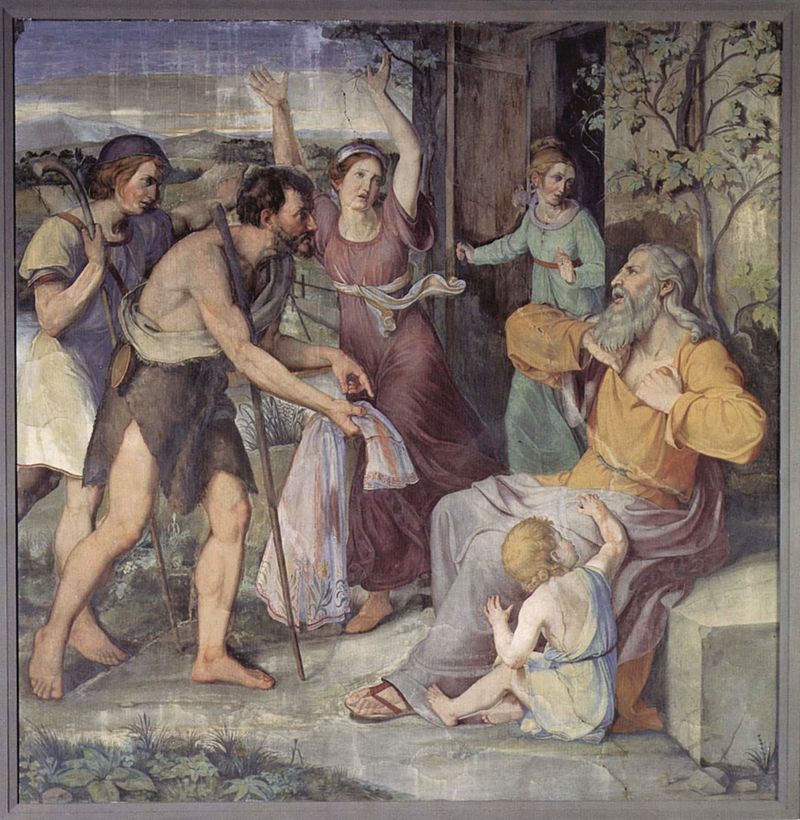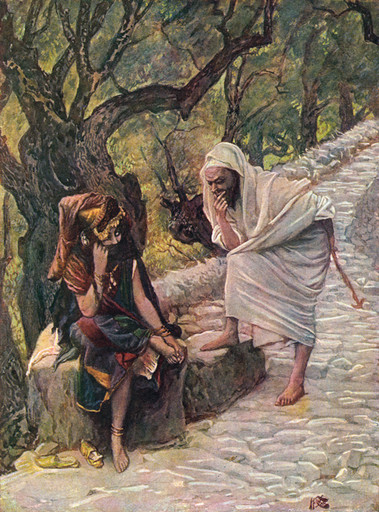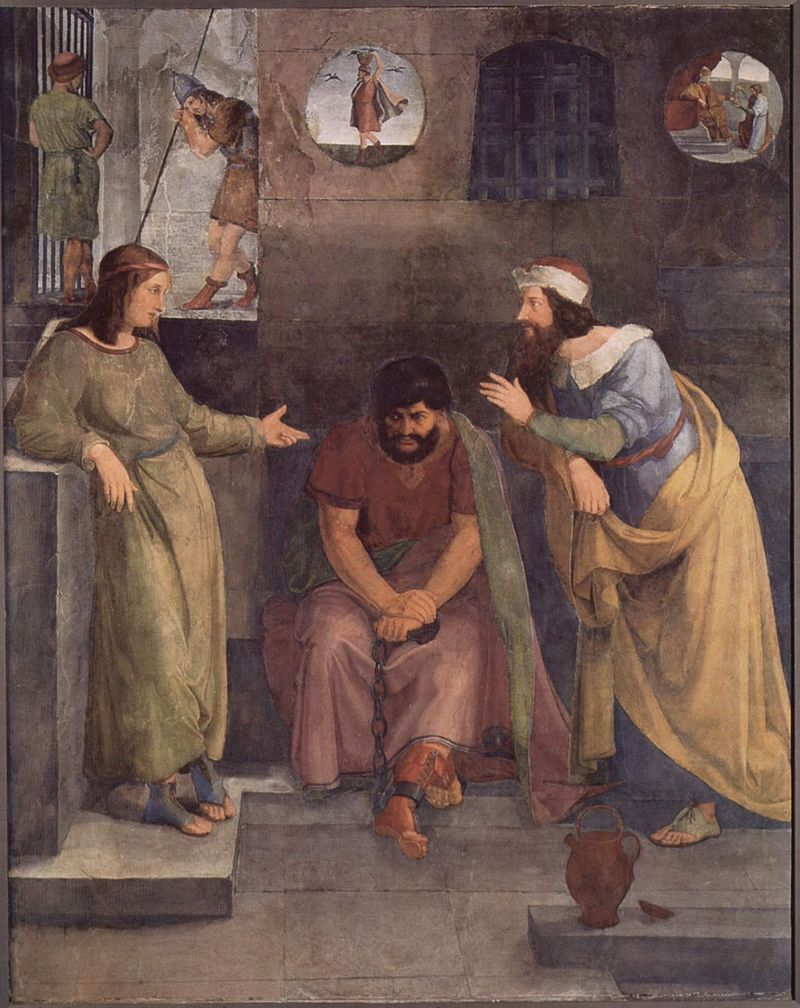And he settled
The story of Yosef begins this week’s Torah portion, Vayeshev, and will continue for the next four weeks until the end of the book of Genesis with Parashot: Miketz, Vayigash, and Vayehi. The reading starts as Yaakov moved to the land of Canaan. His favorite son, Yosef, brought him false reports about his brothers, accusing them of various misdeeds. Yosef was guilty of failing to judge his brothers favorably (Bereishit 37:2). The Talmud teaches us that the way we judge others is the way that G-d will judge us in return (Sota 11).
Yaakov’s favorite son
Yosef’s life is a series of highs and lows, literally and figuratively. The reading starts as Yaakov moved to the land of Canaan. In his father’s house, Yosef is the favored son: “Israel (another name for Yaakov) loved Yosef more than all his sons since he was a child of his old age” (Genesis 37:3). Yosef likely also has this status because he is the eldest child of Yaakov’s favorite (deceased) wife, Rachel. To demonstrate this preference, Yaakov gifts Yosef with the famous kutonet passim, a garment with long sleeves, commentators extrapolate that it was a multi-colored coat of woolen strips for Yosef. This triggered further hatred and jealousy from his 10 older brothers. Yaakov was at fault for showing favoritism, as the Talmud states that a father should not single out one child among the others (Shabbat 10b).
Yosef’s dreams

As a teenager, Yosef does little to ingratiate himself to his brothers. To find more favor with his father, he would report back unkindly about his older brothers’ activities while tending to the flocks (Genesis 37:2). Yosef also tells his family about two dreams he had, the first in which 11 sheaves of wheat bow down to his, and a second where the sun, moon, and 11 stars all bow to him as well. In each case, Yosef interprets the dream as meaning that one day he will rule over his family (Genesis 37:5-11).
Yosef’s punishment
Later, when Yosef came to Shechem to find his brothers at work, the brothers saw the “dreamer” from a far, they acted on their emotions, and decided to kill him (Bereishit 37:18). However, Reuven pleaded with them, to merely throw him into a pit instead (Shabbat 22a), thus saving his life. Yehuda then persuaded the brothers to take Yosef out of the pit and sell him as a slave to a caravan, headed down to Egypt, of passing Yishmaelites. Reuven returned shortly after, to find the pit empty and his clothes, believing Yosef was dead.

The brothers soaked Yosef’s multi colored tunic in goat’s blood and showed it to Yaakov, who assumed that Yosef had been killed by a wild beast (Bereishit 37:31). Yaakov was absolutely distraught. In fact he mourned for 22 years for what he thought was the death of Yosef, during which time we learn that he did not have the divine presence resting within him, unlike the other years of his life (Megilla 17).
Life in Egypt

Yosef’s time in Egypt is even more tumultuous than his life in Canaan. The Ishmaelite traders sell him as a slave to Potiphar, a wealthy Egyptian merchant. Yosef finds great fortune with Potiphar, but his promotion through Potiphar’s household attracts the attention of Potiphar’s wife, who repeatedly tries to seduce him. When her attempts fail, she accuses Yosef of rape, which lands him in prison.

The portion Vayeshev contains astounding examples of bad behavior: Yosef maligns and humiliates his brothers; they, in turn, respond by selling Yosef to the Ishmaelites; Tamar disguises herself as a prostitute and sleeps with her father-in-law, Judah, and Yosef, once in Egypt, is besought by Potiphar’s wife to “lie with me.” (Genesis 39:7) The midrash has a special fascination with Yosef’s decision to rebuff the advances of the nameless wife of Potiphar. What prevented Yosef from succumbing to seduction?
Yosef’s assimilation

Yosef was able to use reasoning, connecting his moral attitude toward adultery with his feelings about Potiphar. Since Potiphar has been good to him, he will not succumb to his wife. Nechama Leibowitz points out that as Yosef advanced in Potiphar’s household, his life became easier. The midrash tells us that he began to pamper himself with food and drink and curl his hair. According to this account, Yosef was beginning to love the Egyptian lifestyle, was starting to assimilate, and was moving farther away from his roots. Thus when he found himself alone with Potiphar’s wife (Genesis 39:11), whose advances he had withstood day after day (Genesis 39:10), he weakened and faced an acute moral crisis. The Gemara taught that just at the moment reported in Genesis 39:12 when “she caught him by his garment, saying: ‘Lie with me,’ Yaakov’s image came and appeared to Yosef through the window. Yaakov told Yosef that Yosef and his brothers were destined to have their names inscribed upon the stones of the ephod, and Yaakov asked whether it was Yosef’s wish to have his name removed from the ephod and be called an associate of harlots, as Proverbs 29:3 says, “He that keeps company with harlots wastes his substance.” Immediately, in the words of Genesis 49:24, “his bow abode in strength.” Rabbi Johanan said in the name of Rabbi Meir that this means that his passion subsided. And then, in the words of Genesis 49:24, “the arms of his hands were made active,” meaning that he stuck his hands in the ground and his lust went out from between his fingernails, and he was saved from temptation.
Yosef’s loyalty

The Torah gives us Yosef’s own explanation in his response to his master’s wife: “He (Potiphar) wields no more authority in this house than I, and he has withheld nothing from me except yourself, since you are his wife. How then could I do this most wicked thing and sin before G-d?” (Genesis 39:9) Thus Yosef, with due allegiance to his boss and master, recoils from the seductive invitation.
Reason over emotions
Perhaps this parashah is intended to raise typical ethical dilemmas. Teaching us to choose reason over emotions. While we understand that much of life is extreme, lived between absolute right, white, and absolute wrong, black, we nevertheless need to be alert to the erosion of ethics also when we live in the “gray areas”, once we begin to justify conduct that we suspect or know to be wrong. The slippery ethical slope begins with small transgressions, “white” lies, “justified” lie, a small bit of gossip, missing a class or taking a sick day when we are not ill. We know that we have stepped on the slippery slope of ethical reflection when it becomes part of our moral justification: I know I shouldn’t but he / she deserved it; but the class was boring; but my parents are mean; but my supervisor is incompetent; but that’s the way things are.
Moral decisions
Once conditions become part of moral decisions, we have compromised the clear “right” and “wrong”; “You shall…” and “You shall not…” mandates of our commandments. Since we know that in his youth, Yosef was prone to bad behavior, we can assume that he realized he was hedging when he refused Potiphar’s wife on the basis of his allegiance to her husband, but at least in this case, Yosef behaved correctly.
Have you ever been tempted to do an unethical thing? and at the last moment you chose to do the “right” thing? even at times, when you couldn’t see the light at the end of the tunnel?
The light at the end of the tunnel

This week’s Torah portion, Vayeshev, contains what might be one of the most famous examples of the idea that things which start off badly might come to a good end. Yosef, the favored youngest son of Yaakov, is sold into slavery by his jealous brothers. He seems destined for a life of enslavement in Egypt when a turn of fortune brings him into good graces with the Pharoah. Yosef’s life quickly changes as he rises to the top of Egyptian society, gaining fame, security and fortune. This is a very positive end to a dreadful beginning.
Sometimes we simply need to look a little harder to find the good in what feels bad. Often we just need patience to wait for changes. It can be hard to hold out hope when things feel as though they are not going your way, but a positive outlook on the world can go a long way towards making situations feel more manageable. Being able to look forward and see the “light at the end of the tunnel” can help make the journey in life much easier.
Shavua tov!
Check out YedidYah “Let There Be Light” a song about The Story of Creation. Music and Lyrics by Rabbi Yakira Yedidia https://www.youtube.com/watch?v=H0GEYQYwDI0
#####
This blog article was inspired by chabbad.org

